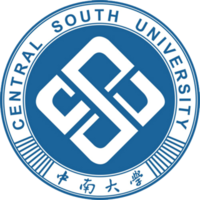
2021年04月08日,杭州电子科技大学Maxim Gelin教授来超快量子调控研究组访问,下午3点在物理与电子学院317会议室为研究组师生带来了一场题为“Femtosecond nonlinear spectroscopy: Why not to try stronger pulses?”的学术报告。束传存教授主持报告会,研究组马松山副教授和长沙理工大学郭裕副教授以及研究组研究生参加了交流。Gelin教授的报告主要介绍强脉冲不仅可以应用于增强弱跃迁, 提供超越脉冲持续时间的时间分辨率,操纵电子和振动衔接手段,以及控制振动波包的贡献,而且强脉冲光谱学能让我们从复杂的物质系统中提取更多的信息的结论。Maxim Gelin教授深入浅出,为在场师生带来了一次精彩的学术报告,报告结束后,Maxim Gelin教授与师生自由交流。同学们感触颇深,收益良多。访问结束后,Gelin教授专门发来邮件盛赞此次访问,并邀请束传存教授尽快去杭州访问,非常希望未来能有富有成效的合作。
报告英文简介:
Traditionally, femtosecond nonlinear spectroscopy is performed with weak pulses. The well-established method of the simulation of such signals is based on third-order perturbation theory in the light-matter interaction. The idea of strong-field spectroscopy is to induce additional (beyond the third order) responses of the molecular system. The result of the interaction of the molecular system with a strong pulse is determined by Rabi cycling rather than by Fermi golden rule.
The present talk advocates the use of strong pulses in nonlinear femtosecond spectroscopy. By explicit calculations of strong-field (transient absorption pump-probe, photon echo 2D) signals of selected model systems and by comparisons with the selected experiments, we show that strong pulses can be applied to enhance weak transitions, to provide time resolution beyond the pulse duration, to manipulate electronic & vibrational coherences, and to control contributions of vibrational wave packets. It can be concluded that strong-pulse spectroscopy allows us to extract more information from complex material systems than is accessible with weak pulses.
报告人简介:
Maxim F. Gelin received his PhD from the Institute of Physics of the National Academy of Science of Belarus in 1995. In 2002-2003, he got Alexander von Humboldt fellowship and moved to the Technical University of Munich (Germany). In 2004-2007, he worked as a research scientist at the University of Maryland in College Park (USA). In 2008, he returned to the Technical University of Munich, where he worked till 2019 as a senior research scientist at the DFG Cluster of excellence Munich Advanced Photonics (MAP). In December 2019, he joined Hangzhou Dianzi University (China). Maxim F. Gelin is an expert in theoretical femtosecond nonlinear spectroscopy, quantum dynamics, and non-equilibrium statistical mechanics.
